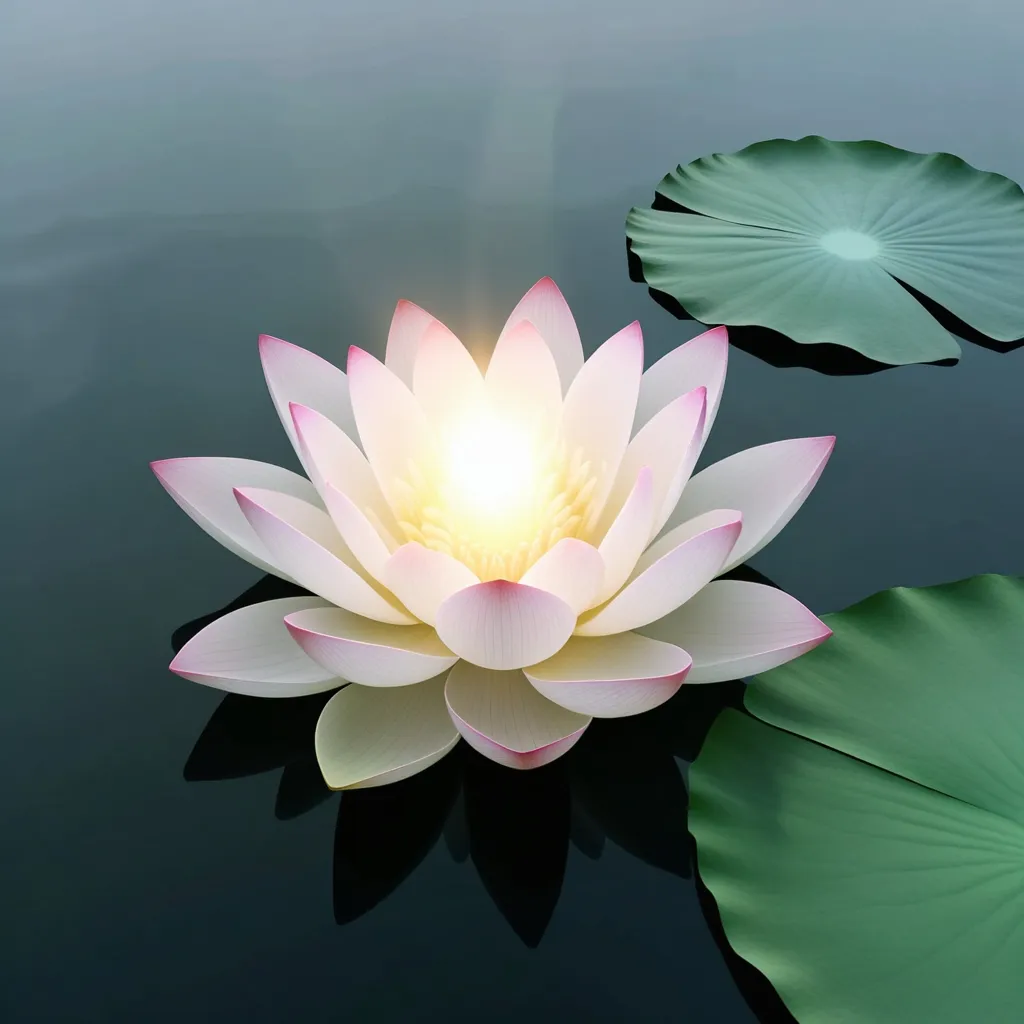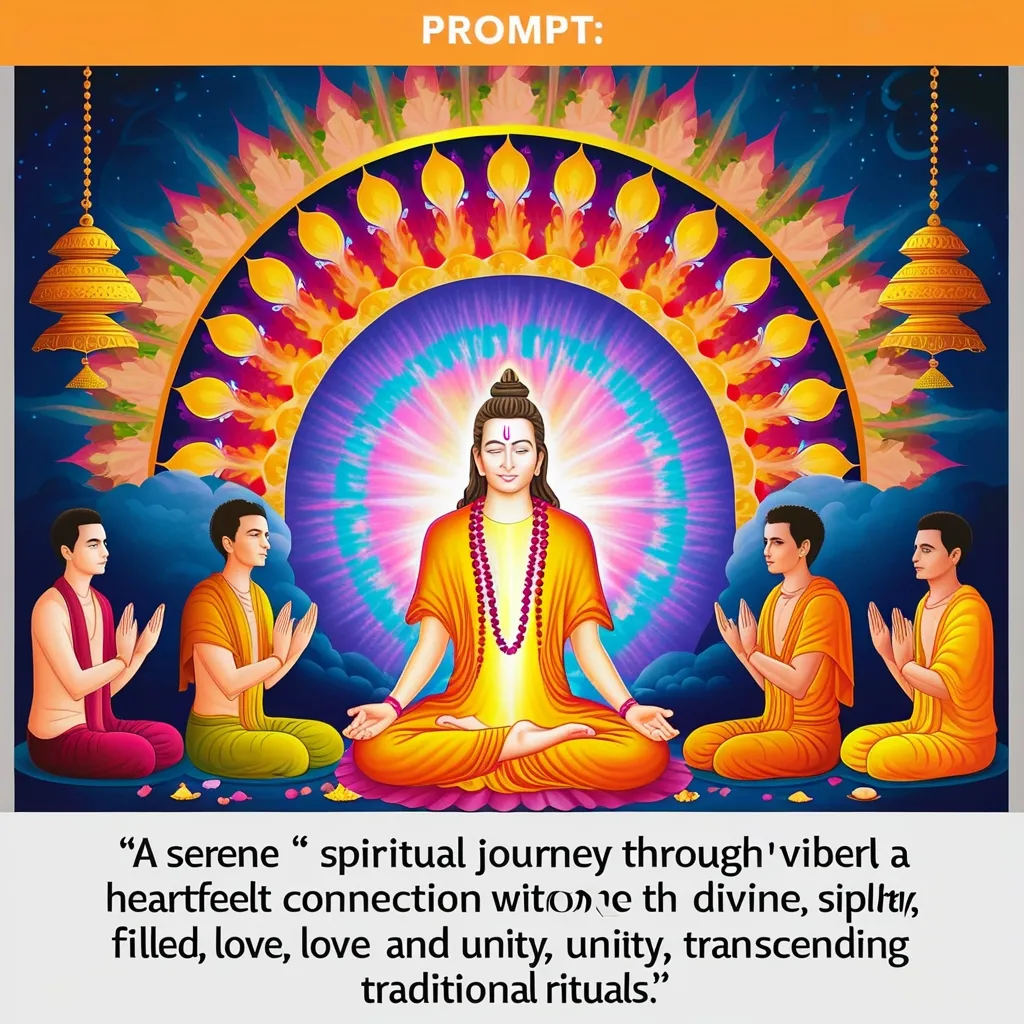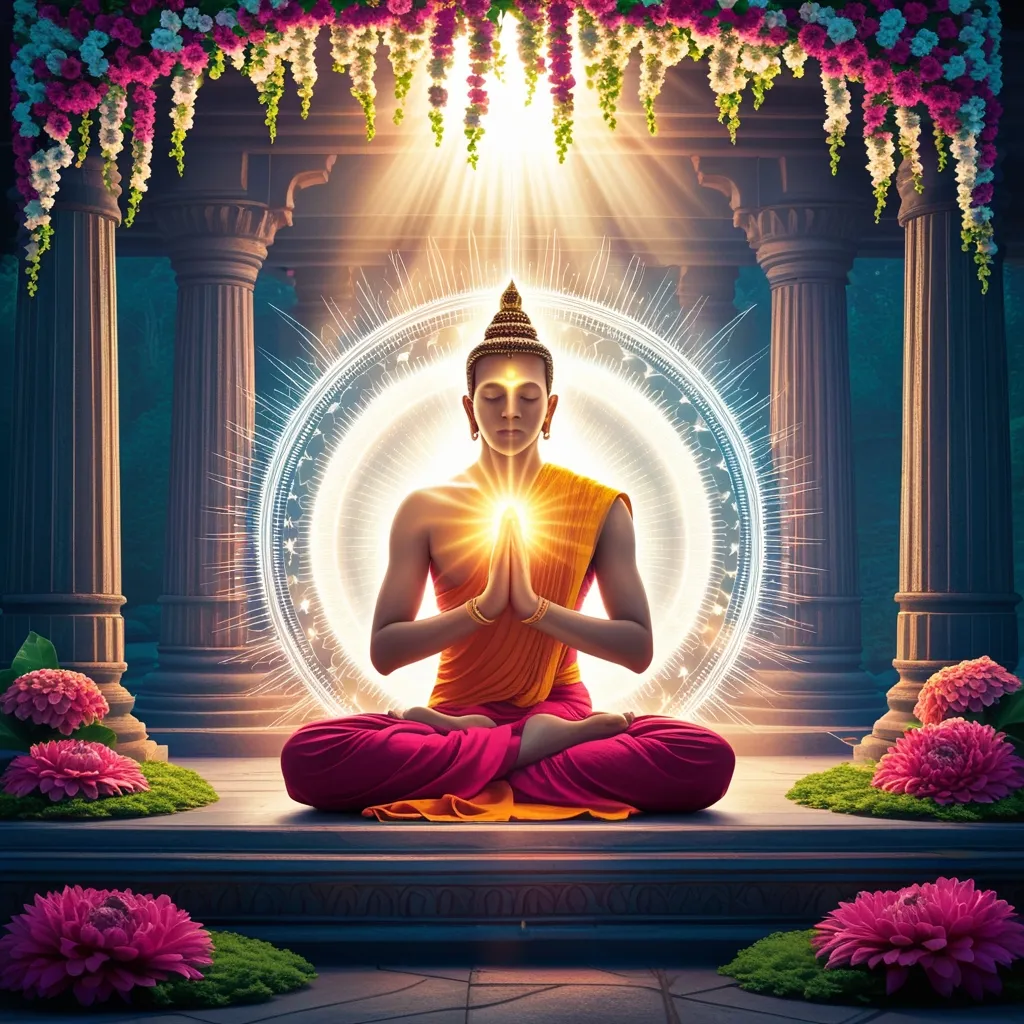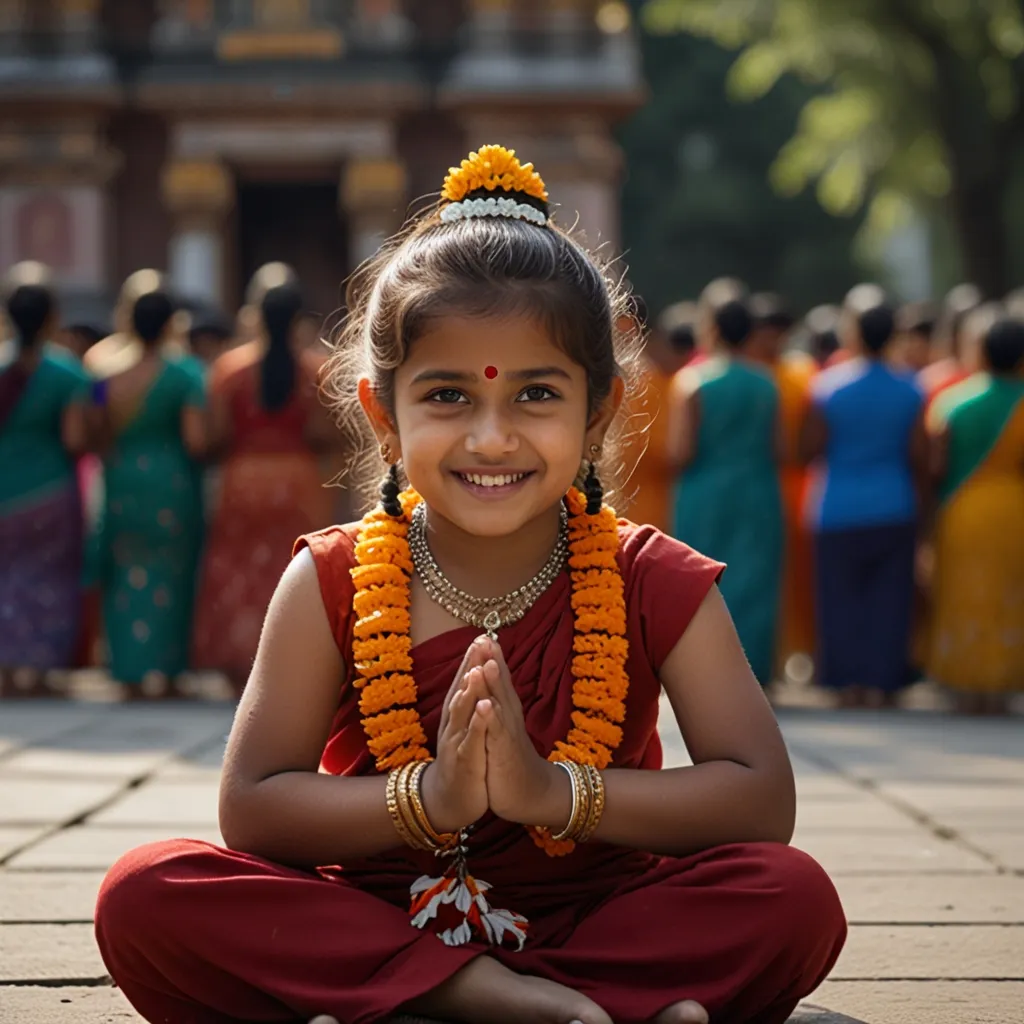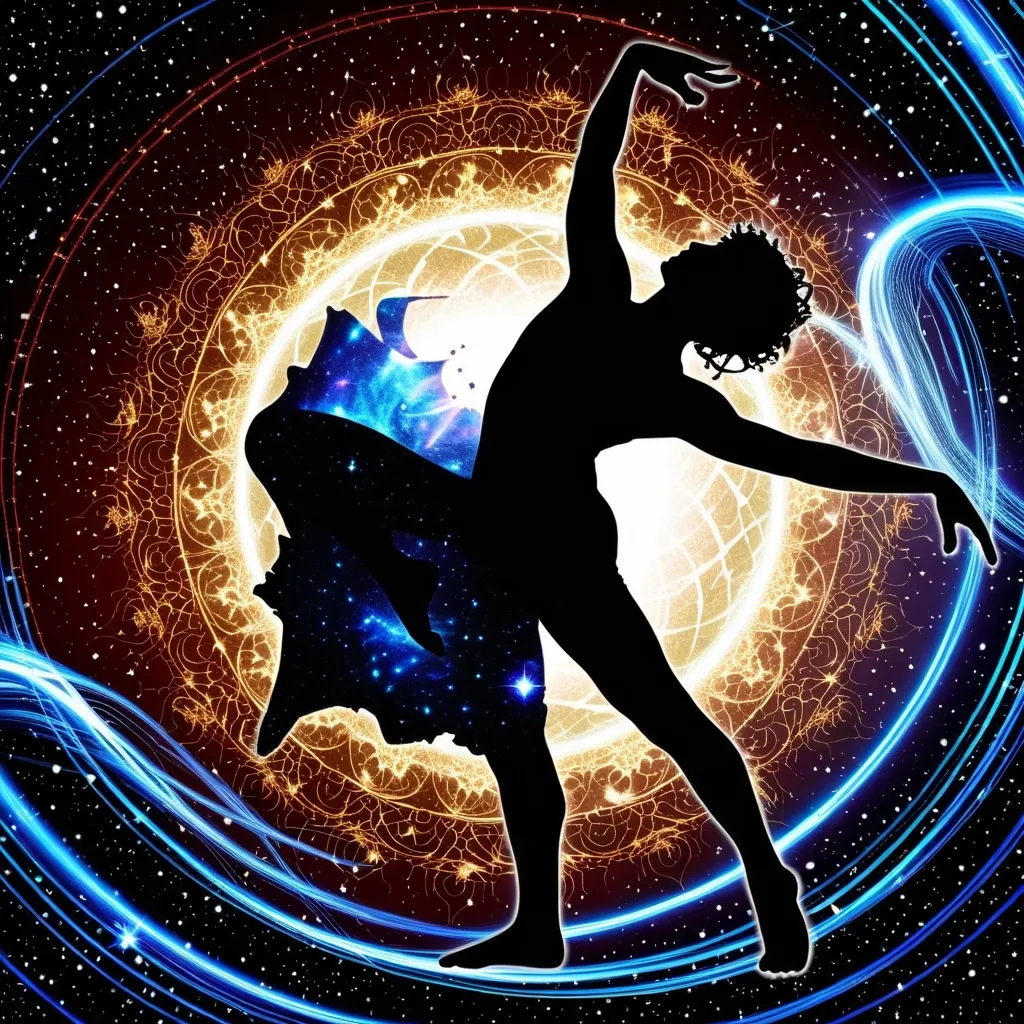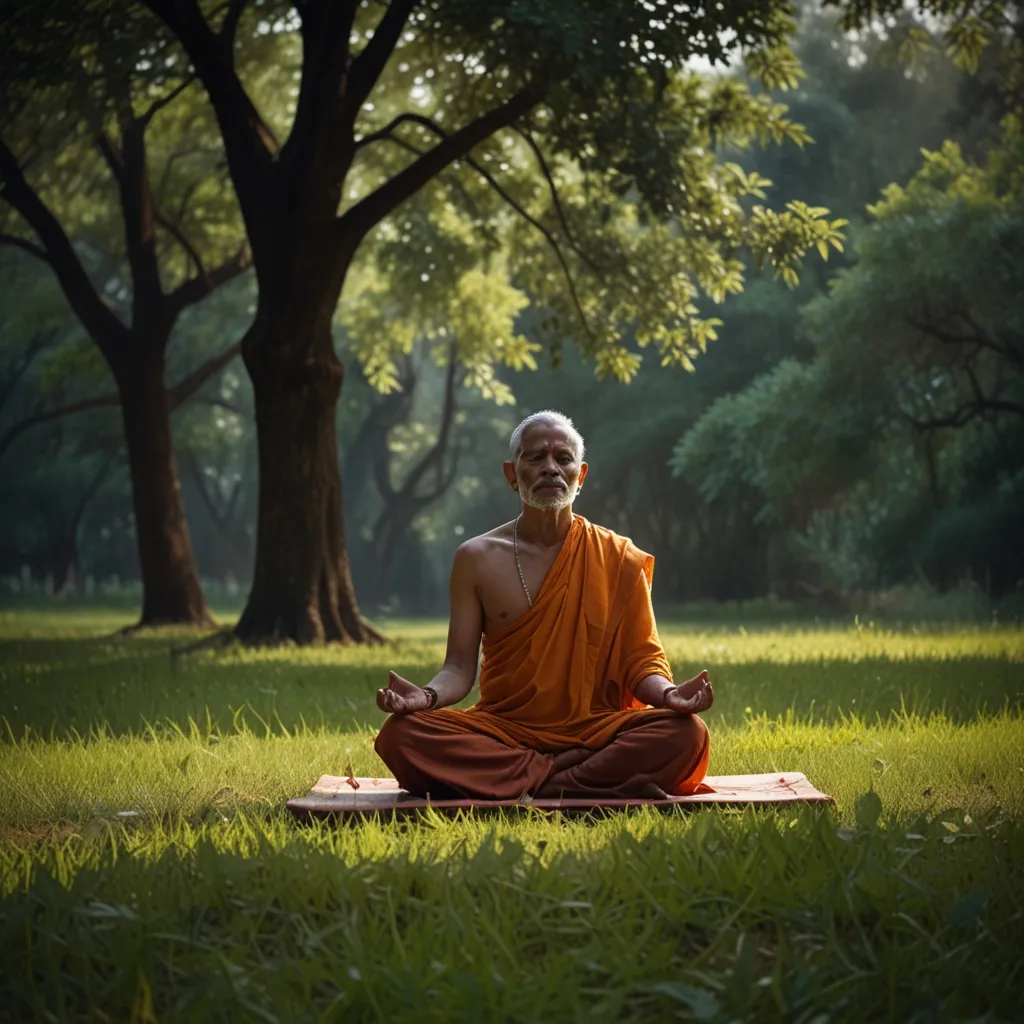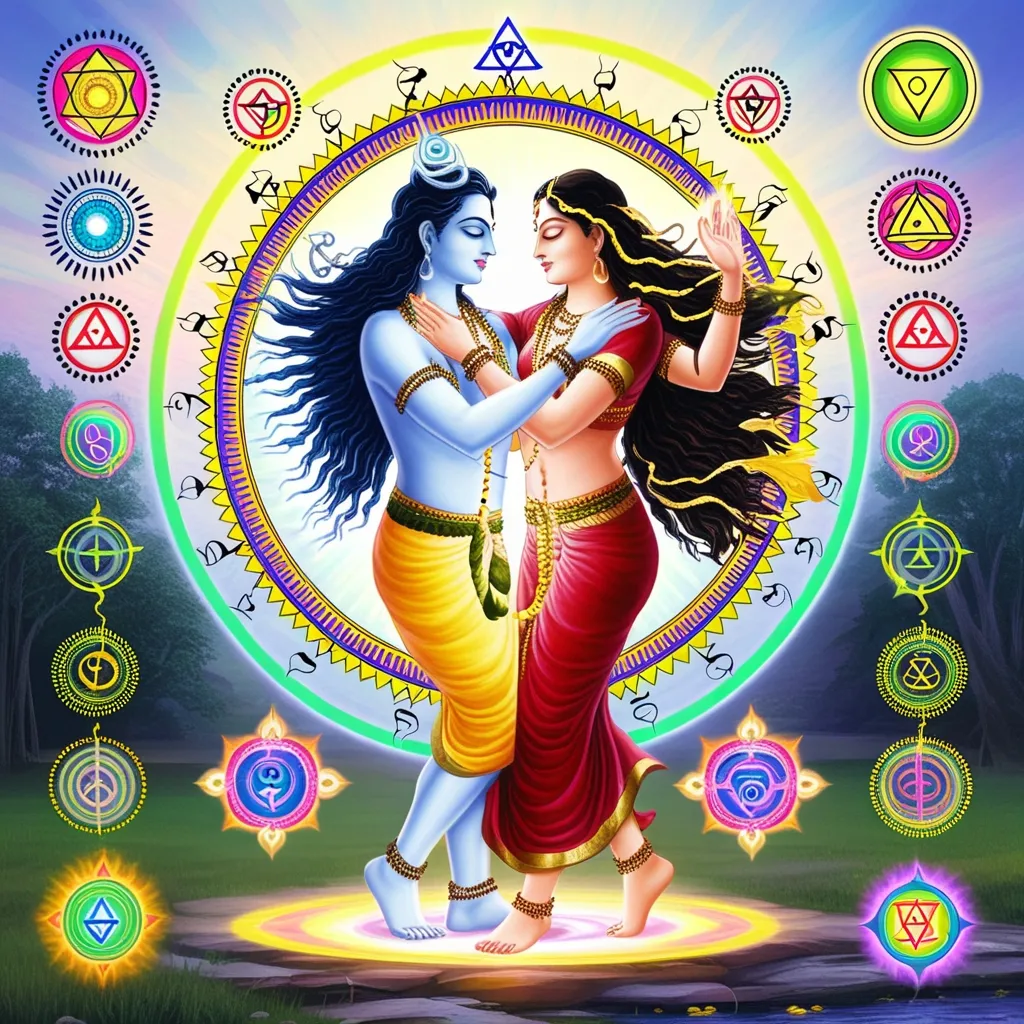Reincarnation: The Heart of Hindu Spirituality
Ever wonder what happens after we die? In Hinduism, death isn’t the end - it’s just a pit stop on a much longer journey. Welcome to the fascinating world of reincarnation, a cornerstone of Hindu belief that shapes how millions of people view life, death, and everything in between.
So what’s the deal with reincarnation? At its core, it’s the idea that our souls keep coming back for more lifetimes, like a cosmic frequent flyer program. Hindus believe we’ve got this eternal soul called the atman that sticks around long after our bodies kick the bucket. When we die, that soul packs its bags and moves into a new body to start the adventure all over again.
This endless cycle of rebirth is called samsara. Think of it like being stuck in a celestial revolving door - round and round we go, life after life. But here’s the kicker: we’re not just randomly popping into new bodies. There’s a whole system to it based on karma.
Karma is basically the universe’s system of checks and balances. Every choice we make, every action we take, it all gets tallied up. Do good stuff, and you’ll rack up the positive karma points. Be a jerk, and you’ll end up with negative karma weighing you down. All that karma determines what kind of life you’ll get in your next go-round.
Let’s say you spend this life being kind and compassionate. When it’s time for your soul to find a new home, you might luck out with a cushy life full of opportunities. On the flip side, if you were a total scoundrel, you could find yourself reborn as a dung beetle. The universe has a sense of humor like that.
But the goal isn’t to keep riding this karmic merry-go-round forever. The ultimate aim is to break free from the cycle altogether and achieve what’s called moksha or liberation. This is the Hindu version of hitting the spiritual jackpot - your soul finally graduates from the school of life and merges with the big cosmic reality known as Brahman. Game over, in the best possible way.
Getting to that point of liberation isn’t easy, though. It takes some serious spiritual heavy lifting. Hindus have all sorts of practices aimed at racking up good karma and inching closer to moksha. There’s yoga (and we’re not just talking about trendy workout classes), meditation, and living an ethical life. Non-violence, or ahimsa, is a big deal. So is following your dharma, which is kind of like your cosmic job description.
One of the coolest things about the Hindu view of reincarnation is how it changes the way people look at death. In a lot of cultures, death is this big, scary, final thing. But for Hindus, it’s more like changing clothes. Sure, you might be sad to say goodbye to that comfy old sweater, but you know you’ve got a whole closet full of other options waiting. Death becomes just another step in the soul’s journey, not some terrifying end.
This belief shows up in all sorts of Hindu stories and scriptures. The epics are full of tales about souls bouncing between different realms - heavenly hangouts, ancestral chill zones, even a quick pit stop in the underworld. Each of these is just another stage in the soul’s grand adventure, with karma as the tour guide.
But reincarnation isn’t just some abstract idea for Hindus. It has real impacts on how people live their day-to-day lives. If you believe your actions in this life will determine your next one, you’re probably going to think twice before being a jerk to your neighbor. It encourages people to live ethically, help others, and generally try to be decent human beings.
For example, a Hindu might choose to volunteer at a soup kitchen not just because it’s a nice thing to do, but because they know it’ll give their karma a boost. Or they might decide to go vegetarian, figuring that not eating animals will help keep their karmic slate clean.
This idea of reincarnation even influences bigger societal stuff. In Hinduism, there’s this concept of dharma, which is kind of like your cosmic job description. Everyone’s got their own specific role to play (that’s svadharma), and doing that job well is seen as a fast track to good karma. It’s like the universe’s way of saying, “You do you, and do it well.”
Even Hindu funerals are shaped by this belief in reincarnation. The ceremonies, called antyesti, are all about helping the soul move smoothly into its next life. There’s usually cremation involved, along with prayers and offerings to make sure the dearly departed has a chill transition to whatever’s next.
When you really dig into it, the Hindu concept of reincarnation is pretty mind-blowing. It’s not just about believing in past lives or future ones. It’s a whole worldview that says life isn’t a one-and-done deal, but a continuous journey of growth and learning. It gives every moment a sense of weight and purpose, because everything you do is shaping not just this life, but all your future ones too.
In a way, reincarnation in Hinduism is like the ultimate long game. It teaches people to think beyond just the here and now, to consider the bigger picture of their soul’s journey. It’s a reminder that our actions have consequences, not just in this life but in the grand scheme of things.
But it’s not all serious business. There’s something kind of exciting about the idea of multiple lives, isn’t there? Like, maybe in your next life you’ll be a rock star, or a brilliant scientist, or heck, maybe even a pampered house cat. The possibilities are endless!
At the end of the day (or the end of this life, I guess), the Hindu concept of reincarnation is about more than just coming back as something else. It’s about growing, learning, and ultimately finding our way back to the source of everything. It’s a spiritual journey that spans lifetimes, with each one offering new lessons and opportunities for growth.
So next time you’re having a rough day, just remember - in your next life, you might be living it up as a king or queen. Or a really happy golden retriever. Either way, it’s all part of the grand cosmic plan. Keep racking up that good karma, and who knows where you’ll end up next!
